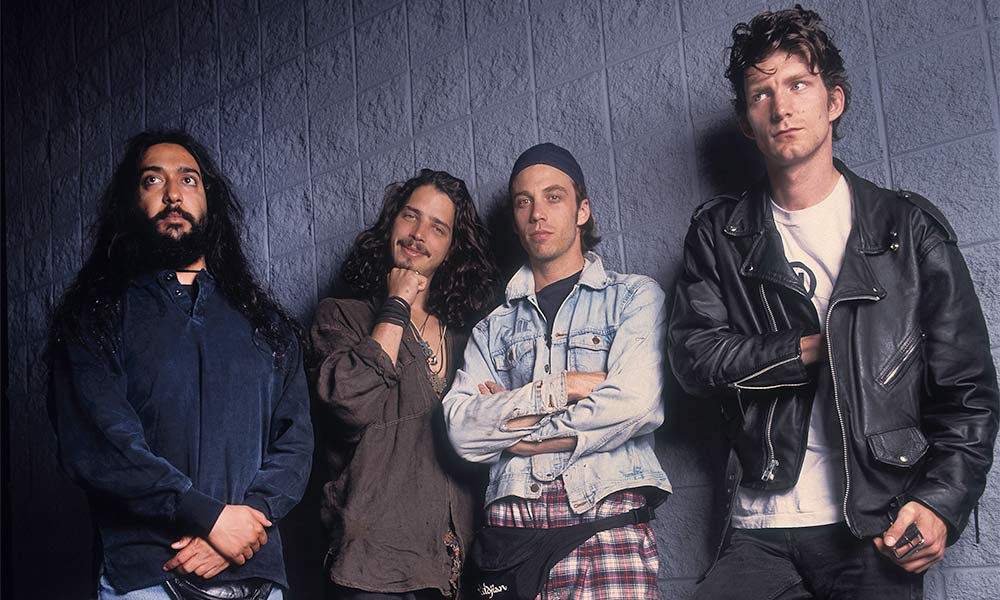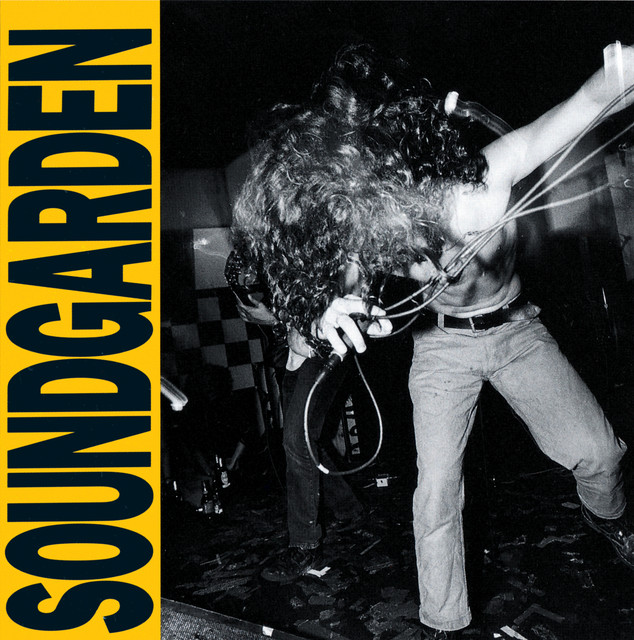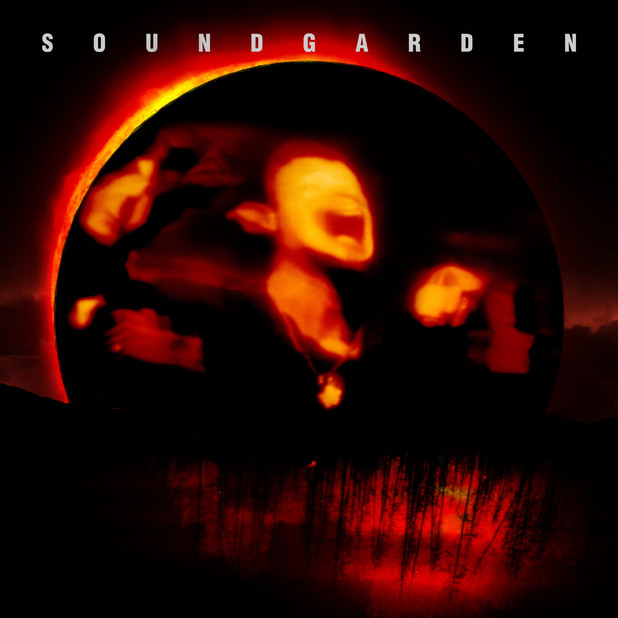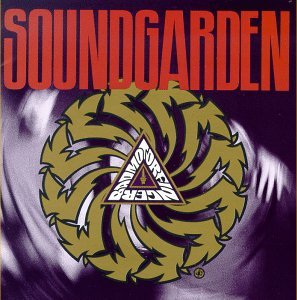


Louder Than Love is the second studio album and major-label debut by American rock band Soundgarden. It was released on September 5, 1989, by A&M Records. After touring in support of their debut album, Ultramega OK (1988), Soundgarden left SST, signed with A&M and began work on its first album for a major label. The songs on the album featured a metal-leaning grunge sound with some songs featuring unusual or unorthodox time signatures. Due to the nature of some of the lyrics (particularly "Big Dumb Sex"), a Parental Advisory sticker was placed on the album packaging. Louder Than Love would become the band's first album to chart on the Billboard 200, peaking at No. 108. The band supported the album with tours of North America and Europe. It was the last Soundgarden album to feature the band's original bassist, Hiro Yamamoto. It was later reissued on January 25, 2002.

Superunknown is the fourth studio album by American rock band Soundgarden, released on March 8, 1994, through A&M Records. It is the band's second album with bassist Ben Shepherd, and features new producer Michael Beinhorn. Soundgarden began work on the album after touring in support of its previous album, Badmotorfinger (1991). Superunknown captured the heaviness of the band's earlier releases while displaying a more diverse range of influences. Superunknown was a critical and commercial success and became the band's breakthrough album. It debuted at number one on the Billboard 200, selling 310,000 copies in its opening week. The album also topped the Australian, Canadian, and New Zealand charts. Five singles were released from the album: "The Day I Tried to Live", "My Wave", "Fell on Black Days", "Spoonman", and "Black Hole Sun", the latter two of which won Grammy Awards and helped Soundgarden reach mainstream popularity. In 1995, the album was nominated for the Grammy Award for Best Rock Album. The album has been certified six times platinum by the RIAA in the United States. Superunknown has been listed by several publications as one of the best albums of the 1990s and a quintessential grunge album. In April 2019, it was ranked No. 9 on Rolling Stone's "50 Greatest Grunge Albums" list.[3]

Badmotorfinger is the third studio album by American rock band Soundgarden, released on October 8, 1991, through A&M Records. Soundgarden began the recording sessions for the album with new bassist Ben Shepherd in the spring of 1991. The album maintained the band's heavy metal sound, while featuring an increased focus on songwriting compared to the band's previous releases. AllMusic considered the album's music to be "surprisingly cerebral and arty"; alternative tunings and odd time signatures were present on several of the album's songs, and lyrics were intended to be ambiguous and evocative. The focus on the Seattle grunge scene helped bring attention to Badmotorfinger, and the singles "Outshined" and "Rusty Cage" were able to find a major audience in rock radio and MTV. Badmotorfinger became the band's highest charting album at the time on the Billboard 200, where it peaked at number 39. The album received critical acclaim, citing the significant improvements over earlier releases and evolution in the band's sound. Soundgarden supported the album with tours of North America and Europe, including opening for Guns N' Roses on the Use Your Illusion Tour. In 1992, Badmotorfinger was nominated for the Grammy Award for Best Metal Performance, and it was certified double platinum by the Recording Industry Association of America in 1996.
Grunge (sometimes referred to as the Seattle sound) is an alternative rock genre and subculture that emerged during the mid-1980s in the American Pacific Northwest state of Washington, particularly in Seattle and nearby towns. Grunge fuses elements of punk rock and heavy metal, but without punk's structure and speed. The genre featured the distorted electric guitar sound used in both genres, although some bands performed with more emphasis on one or the other. Like these genres, grunge typically uses electric guitar, bass guitar, drums and vocals. Grunge also incorporates influences from indie rock bands such as Sonic Youth. Lyrics are typically angst-filled and introspective, often addressing themes such as social alienation, self-doubt, abuse, neglect, betrayal, social and emotional isolation, addiction, psychological trauma and a desire for freedom. The early grunge movement revolved around Seattle's independent record label Sub Pop and the region's underground music scene. The owners of Sub Pop marketed the style shrewdly, encouraging the media to describe it as "grunge"; the style became known as a hybrid of punk and metal.By the early 1990s, its popularity had spread, with grunge bands appearing in California, then emerging in other parts of the United States and in Australia, building strong followings and signing major record deals. Grunge was commercially successful in the early-to-mid-1990s due to releases such as Nirvana's Nevermind, Pearl Jam's Ten, Soundgarden's Superunknown, Alice in Chains' Dirt, and Stone Temple Pilots' Core. The success of these bands boosted the popularity of alternative rock and made grunge the most popular form of rock music at the time.